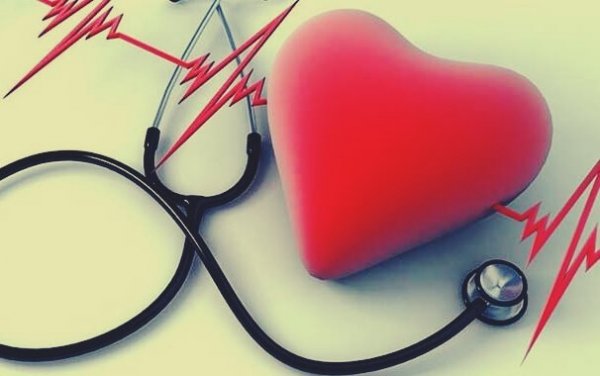3 Marks Psychological Violence Leaves on the Body

Psychological violence doesn’t just leave marks on the mind; it leaves them on the body too. In fact, it has been proven. There are many illnesses that science hasn’t been able to treat or fully cure because they have their roots dug in far enough that no pill you buy at a pharmacy can make you better.
Although we all know body and mind are one unit, we usually look at them separately. But the truth is that everything that affects your emotions will also have an impact on your body. Naturally, a situation as traumatic as psychological violence is no exception to this rule.
There’s a widespread myth surrounding this, though. Unfortunately, what it says is that psychological violence is less significant and has fewer major consequences than physical violence. But it is in fact just as bad — possibly even worse.
Sometimes it can go as far as leaving physical traces similar to being hit. Keep on reading and we’ll tell you about the three most significant marks that psychological violence leaves on the body.
“You yourself, as much as anybody in the entire universe deserve your love and affection.”
-Buddha-
1. Emotional or nervous gastritis
First we’ll explain what gastritis is. It’s inflammation of the gastric mucosa, which is the protective lining of your stomach. The main symptoms are sharp pain the abdominal region, a burning sensation in your gut, and a lot of stomach acidity. The symptoms can be so bad that they’re almost paralyzing.

There are also emotional symptoms that come with this kind of gastritis. The clearest ones are worry, stress, nervousness, and tension. The main cause of this problem is anxiety.
A lot of the time emotional or nervous gastritis is a physical effect of psychological violence that a person brings on themselves (self-inflected). They’re very demanding of themselves, and that puts them in constant emotional tension.
Then that leads to states of stress, which eventually turns into anxiety. They’re not listening to their body. They harm and attack themselves, but most of the time they don’t even realize it.
2. Hypertension
Hypertension is another of the possible consequences of psychological violence. As human beings we’ve evolved to be ready to react to any dangerous situation. Both our bodies and our minds respond to the danger, and each reacts differently to protect us.

Our blood pressure goes up when there’s a sign of danger. Then our body has to get ready to defend itself or run away. When the danger goes away, everything goes back to normal. But if the danger is in your head, you’ll be in a constant state of alert. That by itself will make your blood pressure stay high. Your mind tells your body it needs to stay alert.
People who constantly feel attacked or looked down on usually develop hypertension. In other words, they’re constantly on the defensive because of the psychological violence. These are usually people in high-conflict, harmful environments.
3. Bloodshot eyes
Having bloodshot eyes doesn’t usually come along with any other symptoms. Your eyes don’t hurt, it doesn’t bother them in any other way, and it doesn’t affect your vision. It just shows up “randomly” and then starts to go away. Scientists still aren’t exactly sure why we get them. But that doesn’t mean there aren’t a lot of ideas about it.
From a psychosomatic point of view, bloodshot eyes can be a sign of psychological violence. They’re almost like the result of an emotional punch to the face, where you repress the causes and consequences. In other words, your body reacts just as if you’d been hit in the face. It doesn’t matter that it wasn’t actually physical.

You can also look at bloodshot eyes as a wound from something you saw, or something you see often. It doesn’t have to be a physical thing. It’s a way your mind has of telling you (through your body) that it’s suffering from what it sees. It makes sense that it would appear in situations of psychological violence.
It’s sad, but we don’t usually give emotional health the same weight as we do to physical health. We do this even though we know they’re not separate. However, that’s a big mistake.
Negative experiences like psychological violence don’t just cause physical illnesses, they can also lead to death. That’s why it’s so important to take care of your thoughts and feelings: your life depends on it.
Psychological violence doesn’t just leave marks on the mind; it leaves them on the body too. In fact, it has been proven. There are many illnesses that science hasn’t been able to treat or fully cure because they have their roots dug in far enough that no pill you buy at a pharmacy can make you better.
Although we all know body and mind are one unit, we usually look at them separately. But the truth is that everything that affects your emotions will also have an impact on your body. Naturally, a situation as traumatic as psychological violence is no exception to this rule.
There’s a widespread myth surrounding this, though. Unfortunately, what it says is that psychological violence is less significant and has fewer major consequences than physical violence. But it is in fact just as bad — possibly even worse.
Sometimes it can go as far as leaving physical traces similar to being hit. Keep on reading and we’ll tell you about the three most significant marks that psychological violence leaves on the body.
“You yourself, as much as anybody in the entire universe deserve your love and affection.”
-Buddha-
1. Emotional or nervous gastritis
First we’ll explain what gastritis is. It’s inflammation of the gastric mucosa, which is the protective lining of your stomach. The main symptoms are sharp pain the abdominal region, a burning sensation in your gut, and a lot of stomach acidity. The symptoms can be so bad that they’re almost paralyzing.

There are also emotional symptoms that come with this kind of gastritis. The clearest ones are worry, stress, nervousness, and tension. The main cause of this problem is anxiety.
A lot of the time emotional or nervous gastritis is a physical effect of psychological violence that a person brings on themselves (self-inflected). They’re very demanding of themselves, and that puts them in constant emotional tension.
Then that leads to states of stress, which eventually turns into anxiety. They’re not listening to their body. They harm and attack themselves, but most of the time they don’t even realize it.
2. Hypertension
Hypertension is another of the possible consequences of psychological violence. As human beings we’ve evolved to be ready to react to any dangerous situation. Both our bodies and our minds respond to the danger, and each reacts differently to protect us.

Our blood pressure goes up when there’s a sign of danger. Then our body has to get ready to defend itself or run away. When the danger goes away, everything goes back to normal. But if the danger is in your head, you’ll be in a constant state of alert. That by itself will make your blood pressure stay high. Your mind tells your body it needs to stay alert.
People who constantly feel attacked or looked down on usually develop hypertension. In other words, they’re constantly on the defensive because of the psychological violence. These are usually people in high-conflict, harmful environments.
3. Bloodshot eyes
Having bloodshot eyes doesn’t usually come along with any other symptoms. Your eyes don’t hurt, it doesn’t bother them in any other way, and it doesn’t affect your vision. It just shows up “randomly” and then starts to go away. Scientists still aren’t exactly sure why we get them. But that doesn’t mean there aren’t a lot of ideas about it.
From a psychosomatic point of view, bloodshot eyes can be a sign of psychological violence. They’re almost like the result of an emotional punch to the face, where you repress the causes and consequences. In other words, your body reacts just as if you’d been hit in the face. It doesn’t matter that it wasn’t actually physical.

You can also look at bloodshot eyes as a wound from something you saw, or something you see often. It doesn’t have to be a physical thing. It’s a way your mind has of telling you (through your body) that it’s suffering from what it sees. It makes sense that it would appear in situations of psychological violence.
It’s sad, but we don’t usually give emotional health the same weight as we do to physical health. We do this even though we know they’re not separate. However, that’s a big mistake.
Negative experiences like psychological violence don’t just cause physical illnesses, they can also lead to death. That’s why it’s so important to take care of your thoughts and feelings: your life depends on it.
This text is provided for informational purposes only and does not replace consultation with a professional. If in doubt, consult your specialist.







